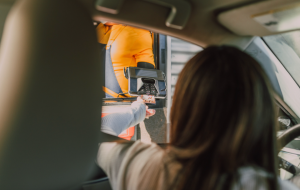[youtube ratio=”0.5625″ position=”standard” caption=””]
Your shit does stink, but it can also help save lives. If you’re in Boston, consider selling your toilet bombs to OpenBiome, a nonprofit organization that collects and processes healthy fecal matter to be used in medical treatments for infections caused by the C. difficile bacteria. The company ships thousands of frozen poops to hospitals all over the United States to help treat the disease. And if you’ve got healthy poop, they want it—they pay about $40 per sample, plus an extra $50 if you’re there for the week.
“Everyone thinks it’s great that they’re making money doing such an easy thing,” OpenBiome co-founder Carolyn Edelstein told The Washington Post. “But they also love to hear us say, ‘Look, your poop just helped this lady who’s been sick for nine years go to her daughter’s graduation.’”
C. difficile bacteria live in the human digestive tract, and when they overproduce they begin releasing toxins that assault the intestinal lining. Symptoms include frequent bouts of watery diarrhea, stomach pains, and fever; it could be extremely painful for sufferers. The infection causes about 14,000 deaths a year because it’s so difficult to treat and C. difficile bacteria are powerfully resistant to antibiotics.
But medical research has discovered that the infection could be cured through fecal microbiota transplantation (FMT) therapies—those are essentially poop transplants. Doctors plant healthy stool in one of the patient’s gastrointestinal tracts, and the “bacteria colonies” living in the healthy stool help get rid of the surplus bacteria living in the patient’s gut.
If you’re considering the prospect, also consider that they have very high standards for what they designate a “healthy” poop. You’ve got to be between the ages of 18 and 50, with a BMI under 30. They also want candidates who haven’t traveled outside the United States in the past year. Only about 4 percent of applicants get approved.
“It’s harder to become a donor than it is to get into MIT,” co-founder Mark Smith told The Washington Post.







